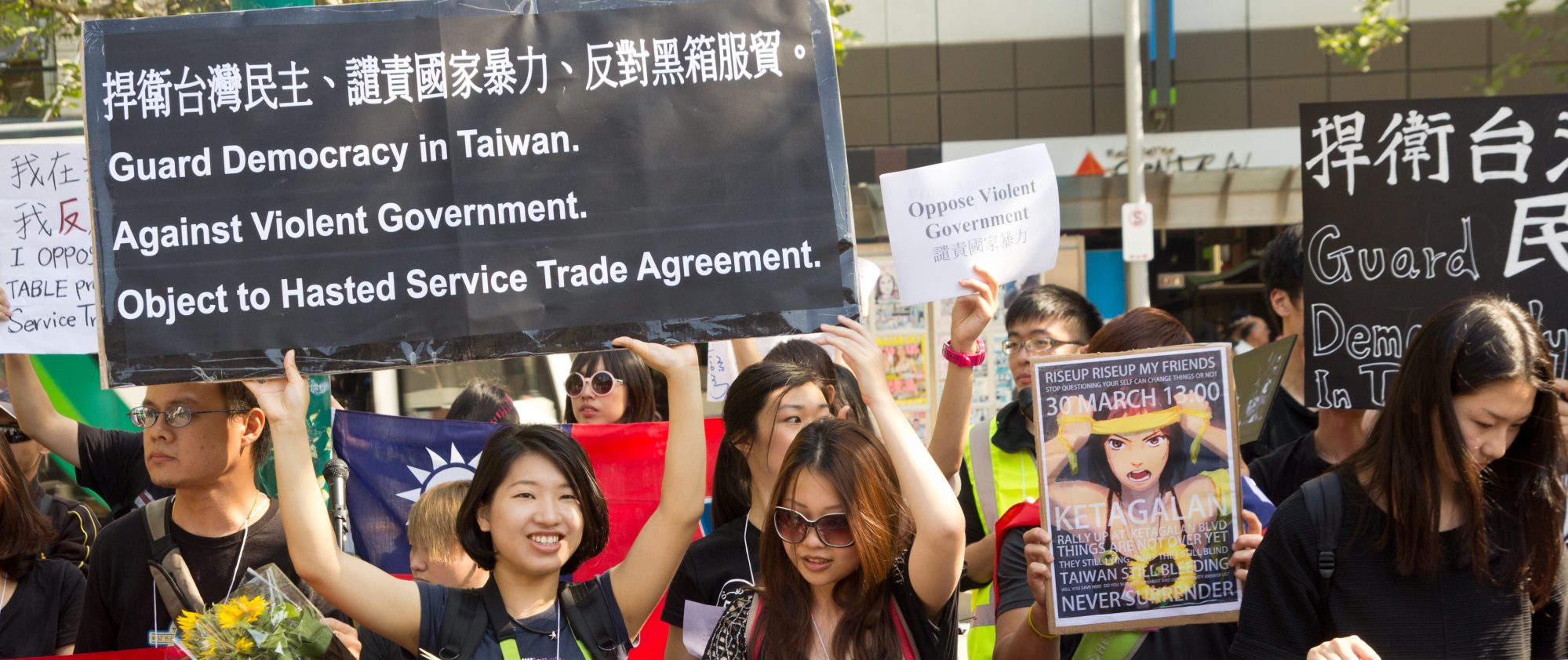
A forum in Taipei yesterday titled “Democracy Building in Asia” brought together experts from Taiwan, the US and Asian countries. The forum was sponsored by the Heritage Foundation, Taiwan Foundation for Democracy (TFD) and the Institute for National Policy Research.
In one of the opening speeches John Chiang (蔣孝嚴), a Vice-Chairman of the KMT and board member of TFD, said it was timely to have the conference in Taiwan now that there have been two orderly and peaceful transitions of power and this shows that democracy can work in Asia.
Lin Wen-cheng (林文程), the President of TFD, speaking in the afternoon said that democratic countries should be more pro-active in promoting democracy in their foreign policy. Taiwan is the only country in Asia that has established a national foundation to promote democracy in the region. Lin said that other countries, especially Japan and South Korea, should establish similar organisations.
The need for greater regional efforts in promoting democracy was highlighted by the presentations of several foreign speakers. Malik Imtiaz Sarwar, President of the National Human Rights Society in Malaysia, said that Malaysia had a very good constitution that included a bill of rights when it obtained independence in 1957. However, since 1987 its democracy has been under attack. Malik emphasised the harm that had been done to the judiciary through sacking key judges who made decisions that went against the government and appointing crony judges.
Jarius Bondoc, a journalist from the Philippines, said that 67 journalists had been killed in the Philippines since 2001 and the harassment of journalists continues.
The first session in the morning was about legislative optimisation. It included talks by representatives of the Congressional/Parliamentary Research services from the US and India.
Hsiao Bi-khim (蕭美琴), a former legislator and currently Director of International Affairs for the DPP, spoke about how procedure in Taiwan’s Legislative Yuan could be improved to consolidate democracy. She identified four categories for change: (1) electoral system, (2) structure of the Legislative Yuan, (3) accountability and (4) quality of legislation.
With regard to the electoral system she said the new system, first adopted in the 2008 election, resulted in a the KMT winning a large majority with many more seats than the percentage of their vote. Small parties were also locked out by the new system. I raised a question about exactly how the system should be improved. Bi-khim replied the issue is being discussed by the DPP but there is no consensus within the party. There is also no consensus between parties on the issue.
Bi-khim also discussed how there was a need to change the committee system in the legislature. The current system offers advantages to members of certain committees who can use them to secure projects for their electorates. There is no consideration of professional skills or seniority in assigning legislators to committees. The rotation of committee chairs also leads to inconsistencies.
As well as reform of the legislature, judicial reform was the topic in the final afternoon session. Dr Joseph Wu (吳釗燮), Taiwan’s former representative in Washington and now a professor at NCCU, said Taiwan has consolidated its democracy through two transitions of power, but there were still important issues that need to be resolved.
Wu highlighted the cases of the Kaohsiung MRT, Yunlin County Commissioner Su Chih-fen and former President Chen Shui-bian as examples of problems in the judicial system. He said there was a need for serious reform of the judicial system. In particular there needs to be better monitoring of judges, judges should not maintain close relationships with prosecutors, there should be presumption of innocence and the recruitment of prosecutors and judges needs to be reformed. There is also a need to revise the criminal procedure code to limit the detention period, Wu said.
Wu said the top leadership must recognise there is a problem with the judiciary and ask top officials to research and investigate this. The government must accept whatever recommendations are made and put them into place.
Other media: The Taipei Times published an article about the forum. The China Post also has a report. The Taiwan News has a related editorial today on reform of Legislative Yuan.


